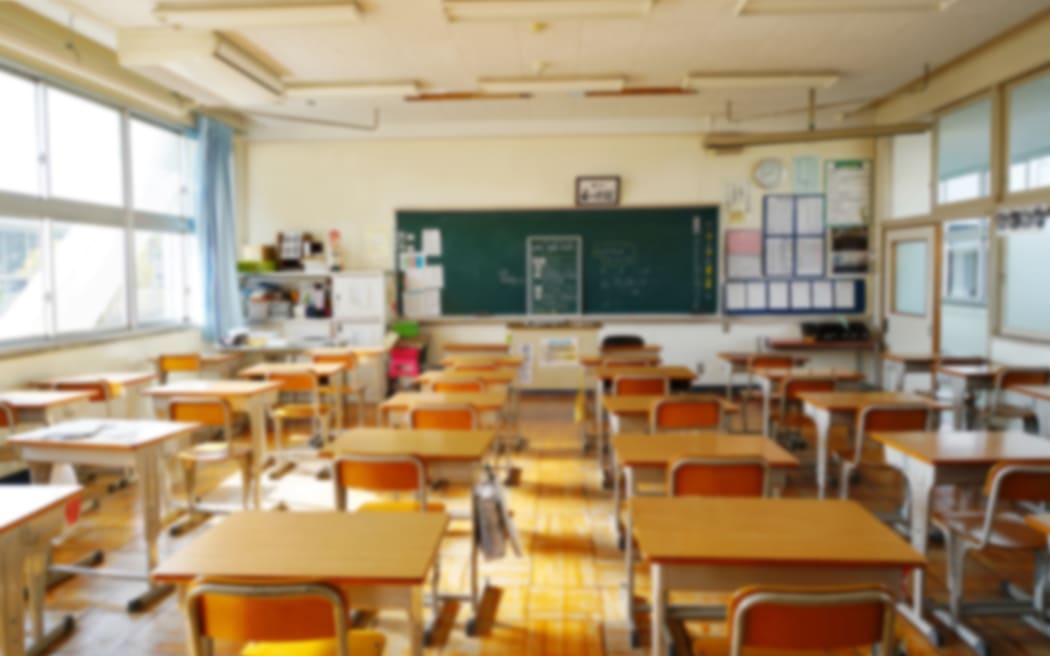Schools in Northland and Auckland are tackling truancy by hiring people to knock on doors and talk directly with families.

Photo: 123rf
Principals told RNZ they wanted to support people to get their children to class every day.
The government has boosted funding for attendance initiatives by millions of dollars and wants at least 70 percent of children attending school regularly by 2024.
Northland had among the worst attendance statistics of any region with more than one-in-five children absent on any given day for most of June.
Whangārei Intermediate principal Hayley Read said she had about 100 pupils away every day.
“Some of them are sick and … the government’s been really insistent on ‘if you’re not feeling well don’t come to school’ and our whānau are taking that to heart and making sure that they’re not sending their children to school unwell. But we do know there are some reluctant children that are not attending school for various reasons that could be at school,” she said.
The intermediate was one of about 40 in the region to receive grants from the Education Ministry’s regional response fund, which got a $40 million boost in this year’s government Budget.
Read said her school topped up the $30,000 it received so it could hire a whānau liaison person or takawaenga, a person who goes between.
“The point of the position is to monitor our attendance and then our plan is for that person to go and liaise with our whānau and go and have a cup of tea and just give them the assurance that coming back to school is a good thing,” she said.
Read said the role would be more effective than the school’s current arrangements, which saw senior leaders chase up potential truants.
“We all kind of divide up the role and we all ring home just to see what’s going on but I think having someone who pops round to have a cup of tea and you know it might be that we can also take some kai there as well, it might be that they’re hungry, or it might be that the uniform situation is the issue. We just need to know,” she said.
Tai Tokerau Principals Association president Pat Newman said his school, Hora Hora Primary, also received a grant from the fund and it too was hiring someone to work directly with families.
“We’re going to be hiring a person to knock on the doors, get inside the houses, chat to the families, mainly because they’re probably related to most of them and be able to look at what is it, what can we do as a school to try and help these kids get here,” he said.
Newman said the school would also spend some of the money on an advertising campaign to encourage attendance.
“We’ve planned to have a social media campaign running and to have it linked in to parents through all the social media plus hopefully also mainstream media, encouraging them to help their families get to school and their neighbours to get to school,” he said.
Meanwhile in Auckland, a group of 10 schools was taking over the work of the former ministry-contracted attendance service in their area.
Māngere College principal Tom Webb said the schools were hiring three engagement officers of their own.
“Three people across 10 schools is not a lot and we’re yet to see exactly how that’s going to operate on the ground. We’re hoping that will be a more effective service because we’ll have closer control as the schools themselves but we do need more resourcing to be put into the area for it to be more effective,” he said.
Webb said it was likely the schools would refer students to the engagement officers if they had been absent for three or more days without contact.
He said Covid-19 and winter illnesses had made attendance a bigger problem than normal.
“Being in more of a grey area at the moment where some people are still catching Covid and coming back to school, that’s been a challenge. It’s been a challenge to keep students coming back to school and keep that messaging clear about the expectations of students coming to school when families are facing some real challenges of their own,” he said.




